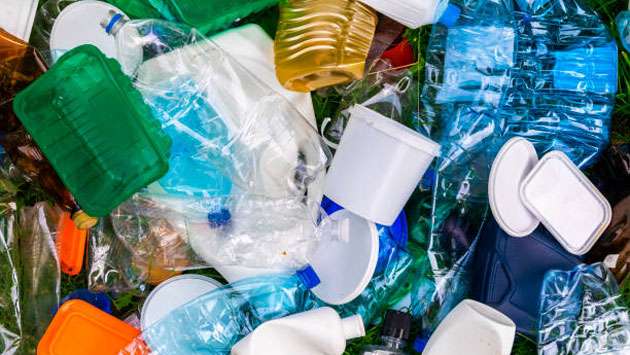Reply To:
Name - Reply Comment

Considering the excessive generation of plastic waste in the country, the Center for Environmental Justice (CEJ) urges the government to implement a tax on single-use plastics.
CEJ Chairman Hemantha Withanage said that a case (No. SCFR 220/21) was filed before the Supreme Court and a letter was sent to President Anura Kumara Dissanayake.
He highlighted that about 20 million plastic bags are discarded daily, in addition to other plastics. This volume of waste poses a significant threat to the environment and public health.
Although legislation was introduced in 2008 to impose a conservation levy on plastic bags, its implementation was halted due to the Supreme Court ruling in case No. SCFR 368/2008. On July 20, 2021, the CEJ filed a Fundamental Rights Petition (No. SCFR 220/21) before the Supreme Court. The petition calls for manufacturers to establish practical procedures to reduce polyethylene production and for consumers to adopt measures to limit single-use plastics.
In case No. SCFR 368/2008, a settlement was reached on March 28, 2024, between the petitioner, the Government, the Consumer Affairs Authority (CAA), the Central Environmental Authority (CEA), and other stakeholders. The settlement included an agreement to impose a tax on single-use shopping bags to address plastic pollution.
However, due to inaction by the previous government, the Finance Ministry and Treasury did not establish the proposed fund. Consequently, this decision was not implemented. Although the CAA lifted the ban on charging for plastic bags imposed in 2008, it did so without introducing a surcharge. Shopkeepers are profiting from the sale of bags, and both measures—charging a price and imposing a surcharge—should be implemented simultaneously.
"We believe that imposing a price on plastic bags will reduce the number of discarded bags to some extent. The proposed tax could generate approximately Rs. 15 million per day, which could be effectively used for environmental conservation and waste management initiatives," Withanage said.
Despite the settlement, nine months have passed without implementing the agreed measures. This delay undermines efforts to mitigate the environmental impacts of plastic pollution, he added.
Therefore, the CEJ urges the President to consider the global trend of enacting laws and policies to minimise, discourage or ban single-use plastics.
Countries such as Ireland, most European nations, and several African and Asian countries—including Kenya and Rwanda—have successfully implemented taxes and regulatory measures to reduce single-use plastics. These initiatives have proven effective in significantly decreasing plastic waste and promoting sustainability.
Currently, discussions are underway under the auspices of the United Nations to develop a global agreement to limit plastic use, including plans to ban single-use plastics.
Given the urgency of this issue, the CEJ calls on the President to ensure the implementation of the Supreme Court settlement in case No. SCFR 220/21 without further delay.
By introducing this surcharge, Sri Lanka can take a significant step toward reducing plastic waste while generating much-needed funds for environmental conservation and sustainable development, he added.